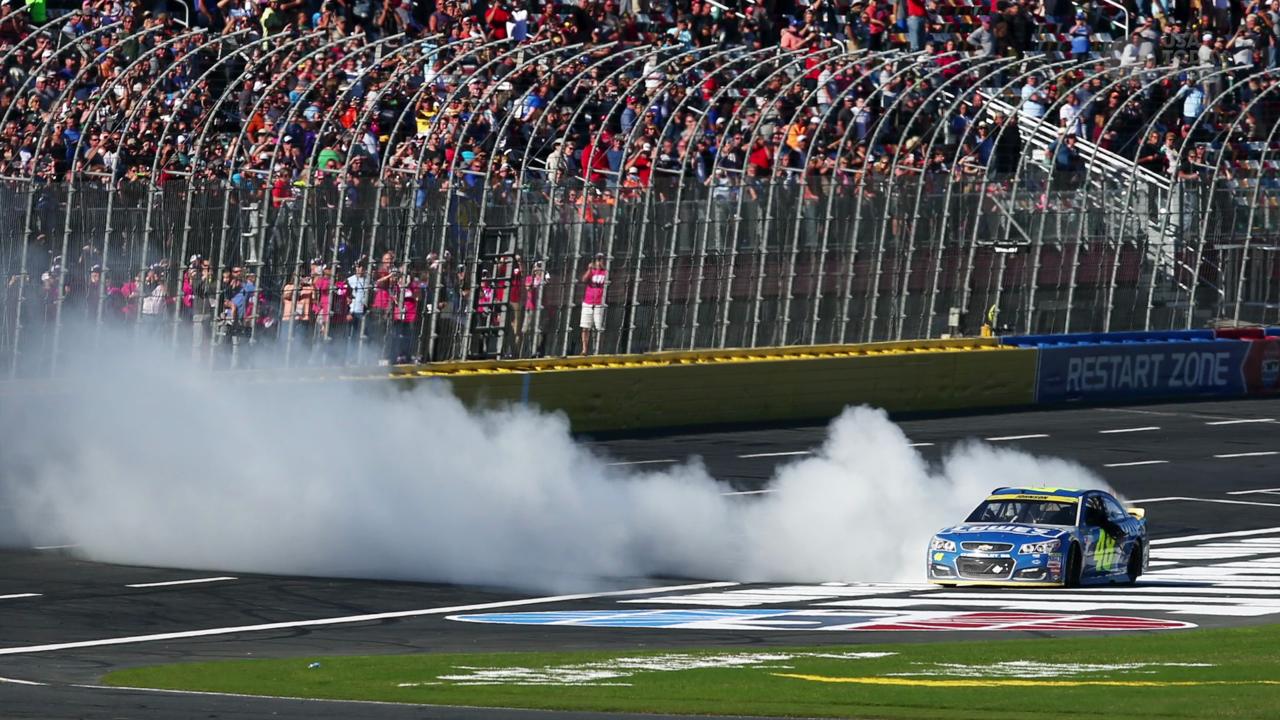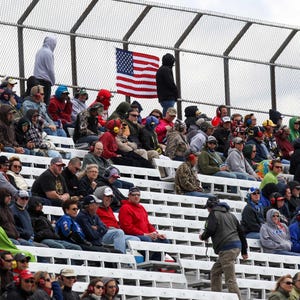NASCAR’s next title sponsor may bring less money to table – USA TODAY

USA TODAY Sports’ Brant James looks ahead to the Hollywood Casino 400 and the story lines that fans should keep an eye on leading up to this weekend’s race.
USA TODAY Sports
KANSAS CITY, Kan. — Sprint employees will convene at Kansas Speedway today for their final homecoming game.
There will be tickets for themselves and a guest, a hospitality suite and a meet-and-greet with local favorite and Missouri native Carl Edwards. And when the checkered flag waves, there will be just five races remaining until the Overland Park-based cellular company ends its 13-year relationship as title sponsor of NASCAR’s top series. Sprint, which inherited the deal when it merged with Nextel in 2005, will move on to new agendas.
NASCAR will continue the process of replacing a title sponsor for just the third time since 1971, in an environment where the value of such partnerships are fluid based on the needs and goals of the company, and the perceived value of a sport where attendance and television ratings have trended tepid.
There still is value in NASCAR sponsorship, Kim Meesters, general manager of the NASCAR Sprint Cup sponsorship, told USA TODAY Sports.
“It all has to be at the right level and the right price. It all has to be customized. That’s why it takes so long to put this kind of deal together,” she said.
But the price has changed markedly.
CSM Sport & Entertainment CEO Zak Brown said the deal will not be as lucrative as the pact NASCAR is finishing with Sprint given the current market climate. Nextel signed a $750 million, 10-year deal to become title sponsor beginning in 2004, according to the Kansas City Star, and Sprint inked a three-year extension through the end of this season at a reduced rate of about $50 million in rights and activations fees, according to Sports Business Daily. Sprint announced in December 2014 that it would not renew.
NASCAR chief operating officer Brent Dewar told USA TODAY Sports on Oct. 2 that the series was making “good progress” on replacing Sprint, but wouldn’t discuss timetables or candidates. Brown said he expected the series to have potential finalists within the next few weeks.
“It’s a very unique property,” Dewar said. “One of the good things (about) having a title sponsor for 12-13 years is you’ve got stability, but you’re also out of the market telling the story.
“So it’s given us a great opportunity to talk about NASCAR, total consumption metrics to a lot of different companies. We’re hoping one will get to be entitlement sponsor. We’re hoping a lot of these companies join this sport with a race team or official partner. We’re in that normal time here as we get close and we’re still encouraged by the number of companies we still have in the mix.”
Brown said NASCAR has “a few real contenders,” including “a couple” companies his firm represents. Among CSM’s numerous clients with existing NASCAR lineage are Budweiser, Castrol, Crown Royal, Farmers Insurance and Hisense. Brown believes that NASCAR shouldn’t rush to complete a deal for 2017.
“NASCAR is very profitable as a business,” he told USA TODAY Sports. “It’s a very wealthy organization, so for them to rush into a bad long-term deal wouldn’t make any sense. So they’d be better off just continuing to look and if that means that this year they go without one and it costs them $40 (million)-$50 million, they can afford it.”
Dewar said securing one before the end of the season is “not an issue at all,” but added that a company new to the sport would likely want or require more time to engage.
Meesters said Sprint has provided NASCAR with data gathered since the beginning of their arrangement to show potential sponsors the benefits of association. Some of that data shows the percent of users/potential customers gained through the Miss Sprint Cup program, how many are now following Sprint corporate on Twitter and how the company used its placement at the track as a big store.
High among those benefits, she said, was a comparatively strong level of fan engagement. The company, she said, still benefits from the relationship.
“Even as we’ve cut back our investment, our numbers are still very positive in terms of what we’re still tracking,” she said. “We’re definitely leaving for different reasons. It was still working. It’s a solid investment. It depends on the brand. Depends on the amount of money they invest, but in general you can say that it certainly is a good property and it’s certainly a valuable property for the right company and the right fit.”
Brown said the new title sponsor should be a “big consumer product” that doesn’t conflict with current series partners. Any company wishing to sign a deal of less than five years, he said, “is not thinking big and long-term enough.” Though NASCAR officials won’t publicly discuss their potential terms, $1 billion over 10 years was an often-quoted starting point in the industry when the process began in 2014.
“It could end up being that over 10 years,” Brown said, “but if you walk in someone’s door and your starting point is you’re talking about a billion-dollar deal, you’re not going to get a lot of meetings. So I think it’s far from that number.”
Dewar said it is NASCAR’s “lead strategy” to secure one sponsor, but Brown said he believes the series would consider splitting a sponsorship over various parts of the season, including one for the regular season and one for the Chase.
Follow James on Twitter @brantjames






